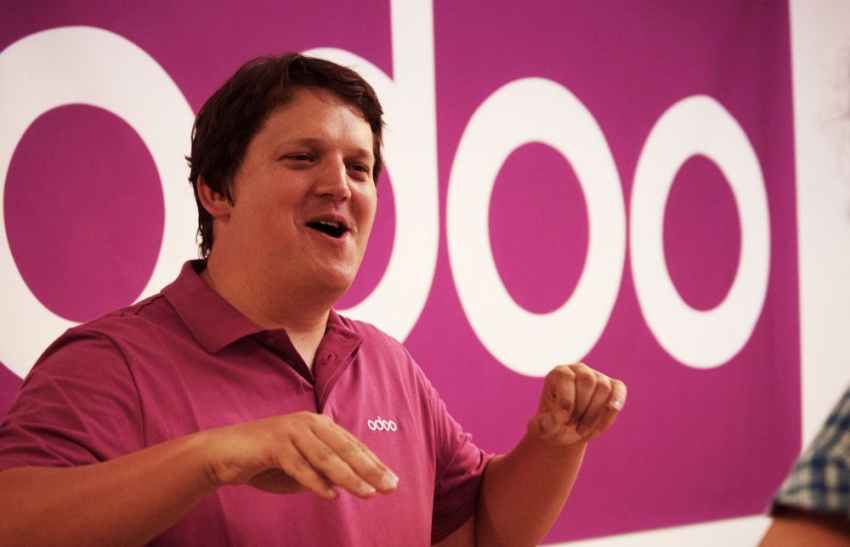Alphabet’s VC arm and Sequoia back Belgian startup Odoo, boosting SAP rival’s valuation to $5.3 billion

Odoo, a Belgian startup taking on SAP in enterprise software, has raised its valuation to €5 billion ($5.3 billion) following a secondary share sale led by Alphabet’s venture fund, CapitalG, and Sequoia Capital.
With more than 5 million users globally, Odoo stands as the world’s most-installed business software. The company specializes in open-source, all-in-one solutions tailored for small and medium-sized enterprises (SMEs). Offering over 80 applications, Odoo’s platform supports a wide range of business operations, including accounting, customer relationship management, HR, e-commerce, and beyond.
We first reported on Odoo in 2019 when the company secured a $90 million minority investment to accelerate product development and expand internationally. That round was led by Summit Partners, with participation from Odoo’s executive team and existing backers SRIW and Noshaq.
Odoo’s offerings go beyond traditional ERP capabilities like accounting, inventory, manufacturing, and CRM. The software suite also addresses broader business needs, including project management, marketing, website building, e-commerce, and point-of-sale solutions. This flexibility has positioned Odoo as a versatile and scalable choice for businesses worldwide.
Profitable Growth Without Primary Funding
Founded in 2005 by Fabien Pinckaers, Odoo aims to provide businesses of all sizes with a fully integrated, feature-rich suite of tools. Its modular design ensures affordability and adaptability, allowing companies to scale their use of Odoo’s software as they grow. The company maintains offices in the U.S., Belgium, Luxembourg, India, Hong Kong, and Dubai, reflecting its global reach.
“My goal in founding Odoo was to make a difference,” said Fabien Pinckaers, Odoo’s founder and CEO. “I wanted to create software that powers the growth of businesses and changes the world. Achieving this required building a strong team, staying innovative, and maintaining focus on our mission. I’m proud of how far Odoo has come and the passionate community that supports us – and we’re just getting started.”
Odoo’s CEO and co-founder Fabien Pinckaers shared that the company didn’t need to raise primary capital, as it is “cash profitable” and has been growing revenue by 50% year-over-year. He highlighted the fragmented nature of the ERP market and the challenges smaller companies face in finding simple and affordable solutions.
“Small companies have complex needs from accounting to inventory, to website, e-commerce, point-of-sale,” Pinckaers told CNBC. “They need something simple and affordable, but nobody has managed to achieve both.”
He contrasted Odoo with larger players like SAP, noting that while those systems work for big businesses, they are often too expensive and complicated for smaller firms.
Andrew Reed, partner at Sequoia Capital, echoed this sentiment, stating that building a system simple enough for small businesses while addressing diverse needs across countries is “no small feat.”
Building From Scratch
Odoo’s story is far from the typical Silicon Valley narrative. Pinckaers started the company 22 years ago, running the business out of a farm in Belgium because it was all he could afford. As the company grew, it expanded with two additional offices in Belgium, housing research, support, and technical teams.
Pinckaers now lives in India, working to grow the company’s footprint there by hiring more staff, boosting marketing efforts, and expanding its partner network.
Last year, Odoo reported billings of €370 million and is projected to exceed €650 million in 2025, with ambitions to cross the €1 billion mark by 2027. Billings, which reflects the total value of invoices issued in a year, is the metric Odoo uses to track revenue.
Open Source at Its Core
Around 80% of Odoo’s business is rooted in open-source software, with the remaining 20% coming from licensed software. Open-source software allows users to access and modify the underlying code, often free of charge. This model has been a key factor in Odoo’s widespread adoption.
Staying Private
Despite being IPO-ready, Pinckaers isn’t in a hurry to go public. He sees remaining private as a way to maintain flexibility and focus on long-term growth.
Odoo’s investors are aligned with this approach. Alex Nichols, partner at CapitalG, expressed no concern over IPO timing, noting that market conditions are beyond their control.
The company has primarily grown through bootstrapping, raising minimal external funding. Odoo’s last primary funding round was a $10 million Series B in 2014. Since then, it has relied on secondary share sales, allowing early investors and employees to sell their stakes.
In the latest €500 million secondary round, private equity firms such as Summit Partners, Noshaq, and Wallonie Entreprendre sold portions of their shares to CapitalG and Sequoia. Despite the sale, Summit remains Odoo’s largest institutional shareholder. Pinckaers himself has never sold his personal shares, underscoring his long-term commitment to the business.




